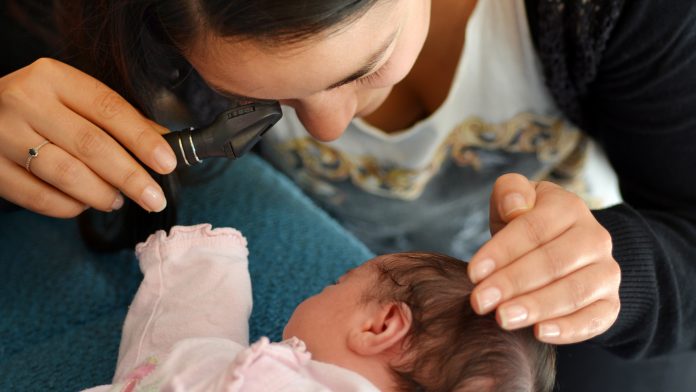
The NHS has approved the use of ranibizumab – a revolutionary drug that can prevent blindness in premature babies.
Ranibizumab will now be offered as a routine treatment for retinopathy of prematurity (ROP), a condition that affects the retina’s blood vessels in babies, leading to scar tissue and permanent vision loss.
ROP is currently treated with laser surgery, which some premature babies are too ill and fragile to receive and has a high risk of leaving scarring on the retina and permanent vision loss.
Ranibizumab is a comparably effective and less risky option for children that will now be rolled out across England following the publication of new national NHS guidance.
A paradigm shift for ROP treatment
Ranibizumab is an off-patent drug that is already employed to treat wet age-related macular degeneration in adults.
A precise injection system is used to administer the medication into the eye, ensuring no scarring is caused. This is essential for babies with ROP in the central and most sensitive region of their vision.
Ranibizumab temporarily inhibits Vascular Endothelial Growth Factor (VEGF), reducing or reversing the growth of abnormal blood vessels.
All preterm or low birth weight babies are screened for ROP on the NHS. This means that if the condition is diagnosed, ranibizumab treatment could begin within two to three days.
Around 31% of babies will require a second treatment within four months of the first dose, will have a regular follow-up in the first six months and an annual follow-up to age five.
Ranibizumab saved Millie’s eyesight
Millie Swan was born prematurely at 23 weeks, spending five months at St Peter’s Hospital to assess multiple medical issues, including close monitoring of her eyes.
Millie developed ROP due to the extra oxygen she was given to support her lungs, with the condition becoming so severe that when she was three months old, her left eye needed urgent treatment to save her sight.
Millie’s mum explained: “She was meant to have laser treatment, which is the usual way to treat this condition, but when they gave her the sedative to prepare her for the procedure, she didn’t tolerate it at all, so they couldn’t start the procedure.
“At this point, we thought she would end up blind in her left eye, but we were lucky enough to get offered this new treatment, which was an injection into the eye.
“I stayed with her for the procedure. Millie needed to have her eye clamped open, but I was used to seeing that happen for her assessments.
“And the treatment was finished in a couple of minutes. That was much quicker than the laser surgery would have been. After the procedure, Millie spent a couple of days recovering.
“Millie will be three years old in July and her eyesight is now normal and she enjoys looking at the pictures in her books and aeroplanes in the sky.”

























